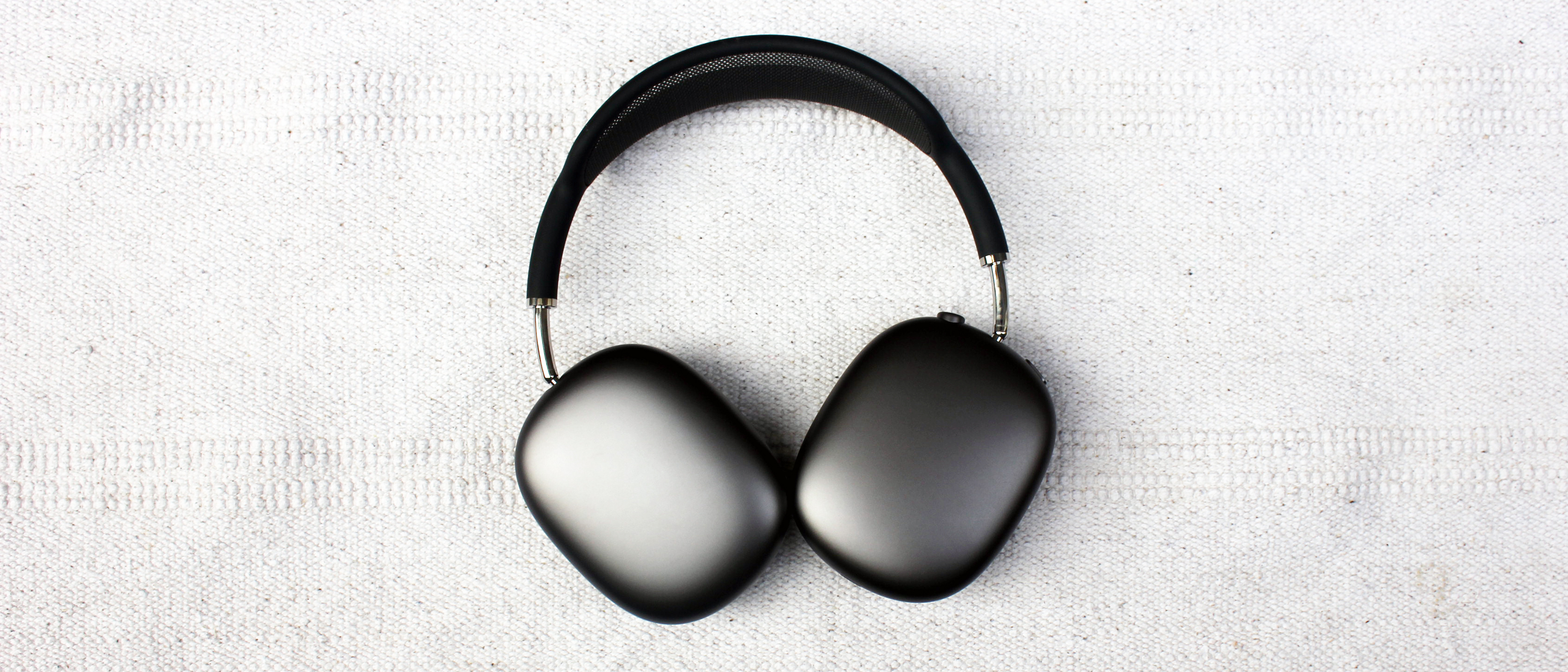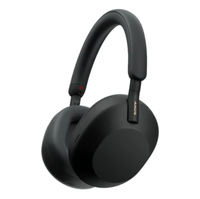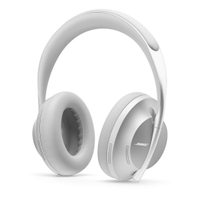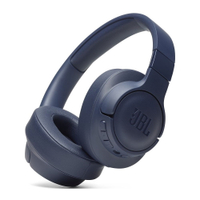TechRadar Verdict
The Apple AirPods Max are among the best-sounding headphones we've ever tested. They're easy to use, and their noise cancellation can easily stand up to the likes of the Sony WH-1000XM4 and the Bose Noise Cancelling Headphones 700. However, their high price, limitations for Android users, and lack of 3.5mm audio port means we'd only recommend them to iOS users with a lot of money to spare—and no interest in Hi-Res Audio.
Pros
- +
Unbelievable audio performance
- +
Fantastic user experience
- +
Brilliant extra features for iOS
- +
Great noise cancellation
Cons
- -
Very expensive
- -
No 3.5mm audio port
- -
Limited features for Android
- -
Ineffective carrying case
Why you can trust TechRadar
Editor's Note
• Original review date: January 2021
• AirPods Max 2 rumored for 2024 launch
• Launch price: $549 / £549 / AU$899
• Official price now: $549 / £499 / AU$899
Update: February 2024. AirPods Max sit a difficult place here in 2024. We still wouldn't argue with the quality of their sound overall, and they offer the best spatial audio you can get even today, when used with Apple devices (plus their other Apple-centric features), so they're definitely still among the best wireless headphones for certain buyers. However, it partly depends on what price you can get them for – we wouldn't recommend buying at full price. The Bose QuietComfort Ultra Headphones sound just as good and cost a lot less, and have far better noise cancellation (and are lighter). However, rumors also suggest that the AirPods Max 2 will arrive in 2024, with better processing, sound and features that match AirPods Pro 2. At this stage, we think it'd be wise to go with Bose or wait to see what happens with the Max 2 – but if you can find these for the right price, they can still make you very happy. The rest of this review remains as previously published.

AirPods Max: Two-minute review
The Apple AirPods Max launched in late 2020, but were the subject of rumor and speculation for years. As the Apple AirPods and the AirPods Pro have been extremely successful, expectations were high for the first ever Apple over-ear headphones.
Did they live up to the hype? Yes and no. Rumors suggested the AirPods Max would be the most advanced wireless headphones ever, with futuristic features, like air gestures. If the Apple AirPods Max had come with those game-changing specs, their $549 / £549 / AU$899 price tag may be justified—unfortunately that’s not the case.
In reality, the Apple AirPods Max are more ordinary than expected; albeit with extraordinary audio quality and brilliant quality of life features for those already devoted to the Apple ecosystem.
The best thing about the AirPods Max is their sound, which is nothing short of outstanding. That's why they're a top pick in our definitive best headphones guide.
They also hold a prime position in our best over-ear headphones guide, our best wireless headphones guide and our best noise-cancelling headphones guide.
They can easily compete with all of the other rivals in those guides in this regard, with a wide, immersive soundstage and carefully balanced profile, with crisp trebles, smooth mids, and powerful bass frequencies.
Weight: 385g
Dimensions: 187.3 mm X 168.6 mm X 83.4 mm (H X W X D)
Noise cancellation: Yes
Battery life: 20 hours
Connectivity: Bluetooth 5.0
Chip: Apple H1 headphone chip (each ear cup)
Controls: Digital Crown, Noise control button, Siri
The design, although divisive, is another win for Apple. With large, flat earcups crafted from hunks of stainless steel. The AirPods Max look unmistakably 'Apple' and feel premium, though the stainless steel build means they're heavy—saying that, we did find them comfortable enough during our tests.
One issue is the lack of a 3.5mm audio port; if you want to listen with a wired connection, or hook up the Apple AirPods Max to an amp or DAC, you'll have to shell out for a USB-C to 3.5mm audio port adaptor. That seems miserly when you consider the price. Another thing that will put off the audiophile crowd is the lack of support for Hi-Res Audio codecs, which is limited to Apple's own Apple Digital Masters.
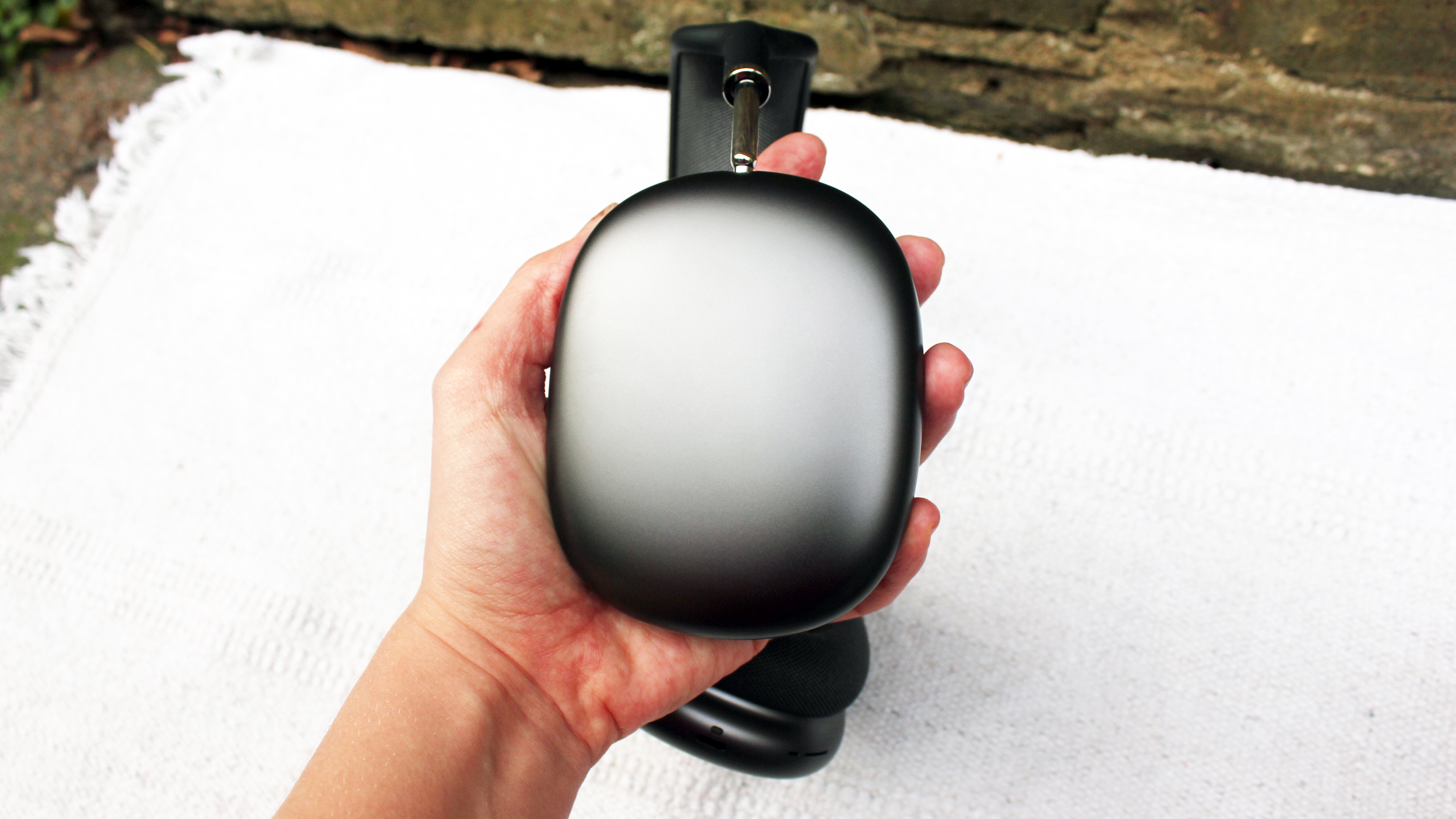
So despite their premium price and fantastic sound, they're not marketed towards audiophiles. But their price means the Apple AirPods Max are hardly a mass-market product—casual listeners will be unwilling to shell out so much.
We've decided the AirPods Max are aimed at Apple devotees, as there are many benefits open to Apple users and not Android users. These include immersive Spatial Audio, the ability to automatically switch between iOS devices, one-tap setup, hands-free Siri activation, and Audio Sharing. Post-launch updates include Conversation Boost, the ability to announce notifications with Siri, and integration with Apple's Find My feature.
For Android users, the AirPods Max are simply a high-performance pair of noise-cancelling headphones—and we can't see how the high price is justified.
If you're a card-carrying member of the wider Apple ecosystem, you have a lot of money to spend on headphones, and don't care about Hi-Res Audio, you won't find headphones that sound better or are easier to use.
If those points all apply to you but you prefer the true wireless earbuds form factor, it's also worth taking a look at the newest Apple AirPods Pro 2, a pair of buds that offer a significant upgrade in terms of performance compared to the AirPods Pro (2019) but certainly aren't cheap. If you're wedded to the over-ear design, read on for our full Apple AirPods Max review.
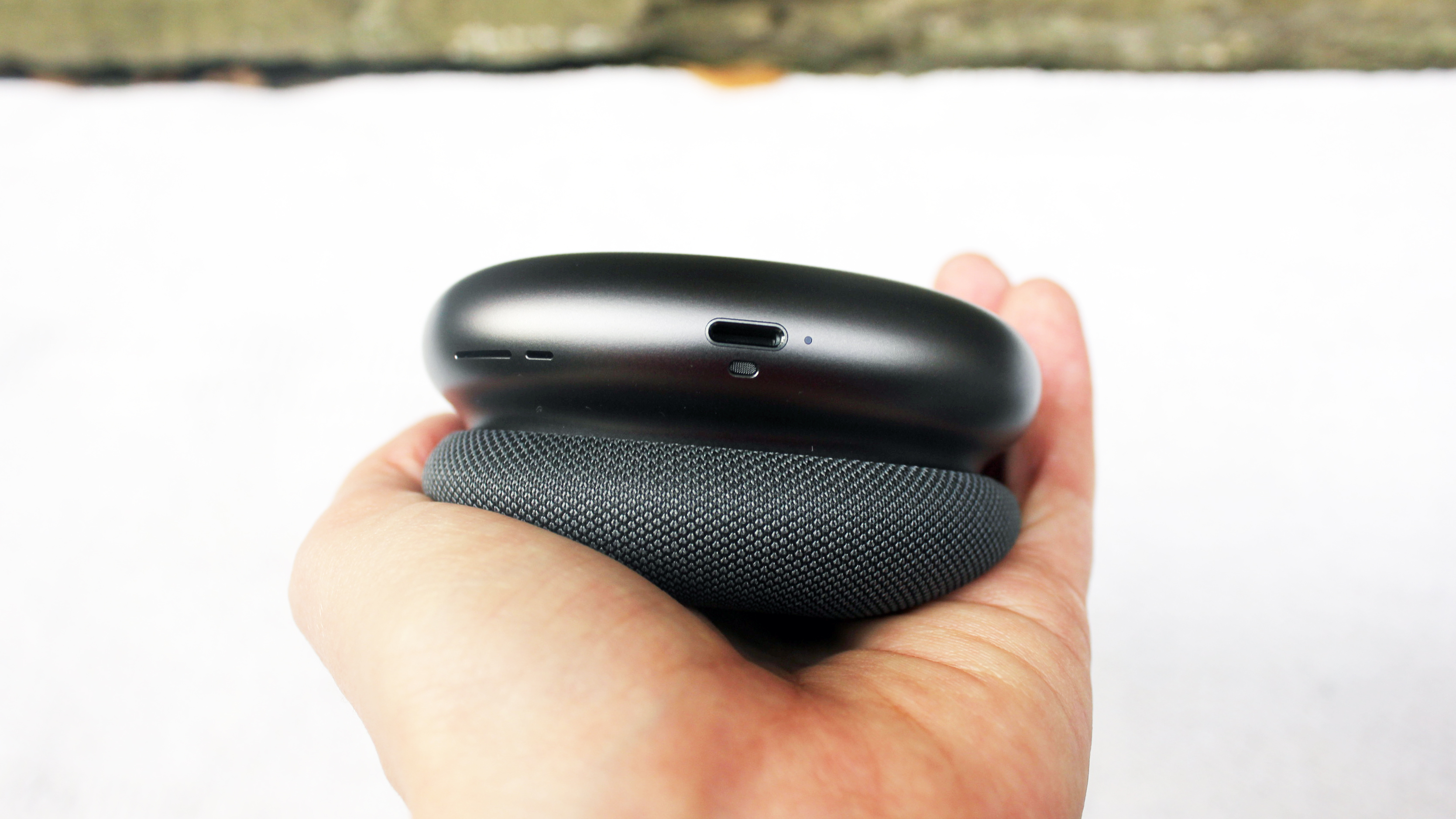
AirPods Max review: Price and release date
- The Apple AirPods Max cost $549 / £549 / AU$899
- Incredibly expensive compared to rivals
The Apple AirPods Max cost $549 / £549 / AU$899 and were officially released on December 15, 2020.
That price makes the Apple AirPods Max far more expensive than most of the best over-ear headphones on the market.
Read our Sony WH-1000XM5 review for our current favorites. Although they're still pricey, they cost significantly less than the AirPods Max at $399 / £380 / AU$649. And our pick of the best pair of budget over-ears cost $199 / £160, which you can find out more about in our Philips PH805 wireless headphones review. There's no doubt about it, the Apple AirPods Max are incredibly expensive.
There are rumors that Apple is planning to release a cheaper, sports-friendly variant of the AirPods Max, but even then you can expect those to cost a pretty penny.
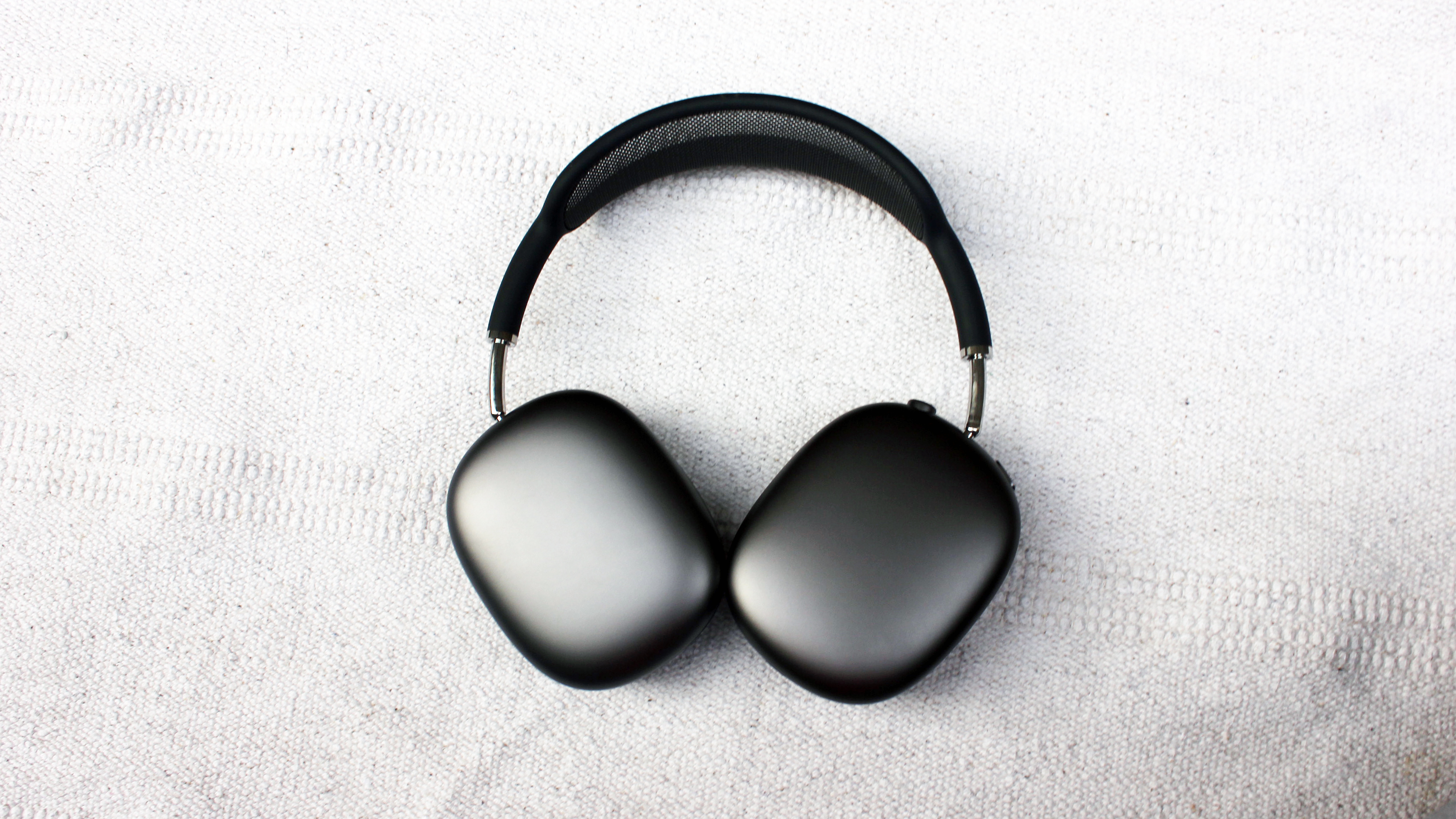
AirPods Max review: Design
- Stylish and minimal looks
- But the design won't appeal to everyone
- Heavy at 385g
After the price, the next biggest controversy surrounding the Apple AirPods Max is their design; they look quite unlike any other headphones on the market right now, with large flat earcups crafted from stainless steel, and a carrying case that's instantly recognizable.
There's an unmistakably 'Apple' quality to the earcups; some may describe them as stylishly minimal, while others might say they're rather featureless. Those that are looking for a bit more impact from their headphones may want to try the AirPods Max in one of their brighter color options, which include, silver, sky blue, green, and pink
We weren't sure about the overall design at first, but we have to say it's grown on us; they do look rather special compared to the competition, with a build quality that feels suitably premium for the price.
Special though they may be, those stainless steel earcups mean that the AirPods Max are quite heavy, coming in at 385g—for comparison, the Sony WH-1000XM4 weigh 254g. Sure, that extra heft does make the AirPods Max feel as though they're sturdy and well-made, but it's a lot of weight to be carrying around on your head all day.
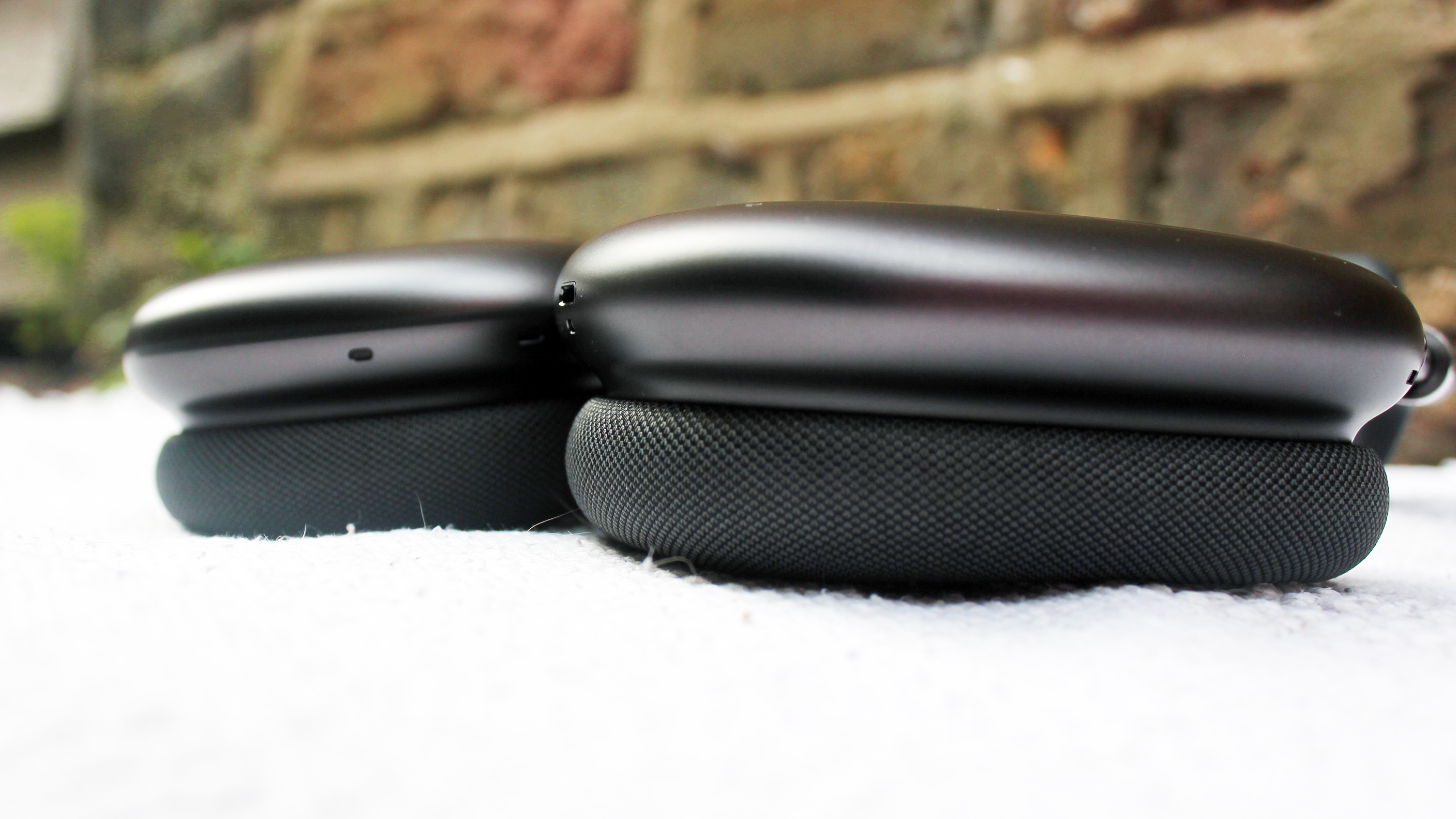
To offset that added weight, the Apple AirPods Max come with a headband made from a knitted mesh fabric that's designed to reduce on-head pressure. The look of the headband is certainly novel, but after spending time with the AirPods Max, we've come to appreciate it—they're very comfortable to wear despite their relative heaviness.
Are they as comfortable as the Sony WH-1000XM4? We don't think they quite measure up to the best headphones you can buy today in that respect, but the AirPods Max don't come with that uncomfortable clamping feeling that some over-ear headphones cause.
The headband frame itself is made from stainless steel, with telescoping arms that you can adjust to find a good fit – they'll stay in place once you adjust them, so you won't be constantly fiddling with the fit. The frame feels sturdy and well-made, but it's not so heavy as to put pressure on your head.
The memory foam earcups also feel comfortable, and can pivot independently to fit your head. The earcups are easily removable, snapping in place via a magnet; you'll be able to buy replacement earcups for the AirPods Max for $69 / £75 / $99 from the Apple Store.
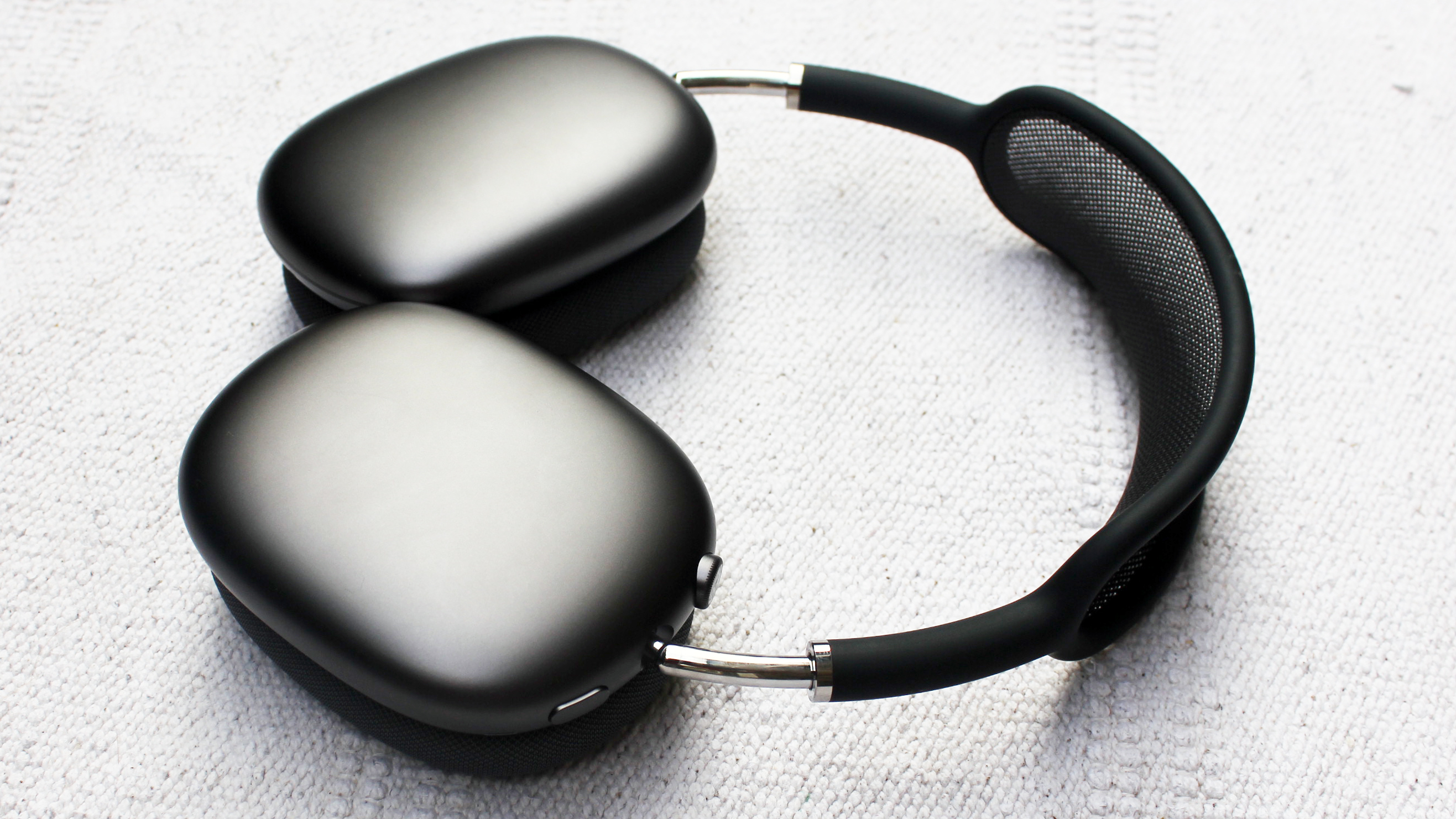
The on-ear controls on the AirPods Max are minimal; interestingly, Apple has reprised the Digital Crown dial of the Apple Watch, which it says enables precise volume control, as well as allowing you to play or pause audio, skip tracks, answer or end phone calls, and activate Siri.
You can simply turn the dial on the top of the right earcup to adjust the volume, or press once to play / pause your music, press once to answer and end phone calls, press twice to skip to the next track, and press three times to skip backwards.
We liked the tactility a dial provides, and it definitely feels like a more precise way of adjusting the volume as opposed to a button or swipe controls. In fact, we're quite pleased that Apple hasn't opted for touch-sensitive housings; in our experience, they can be temperamental, and it's tricky to remember all those different gestures.
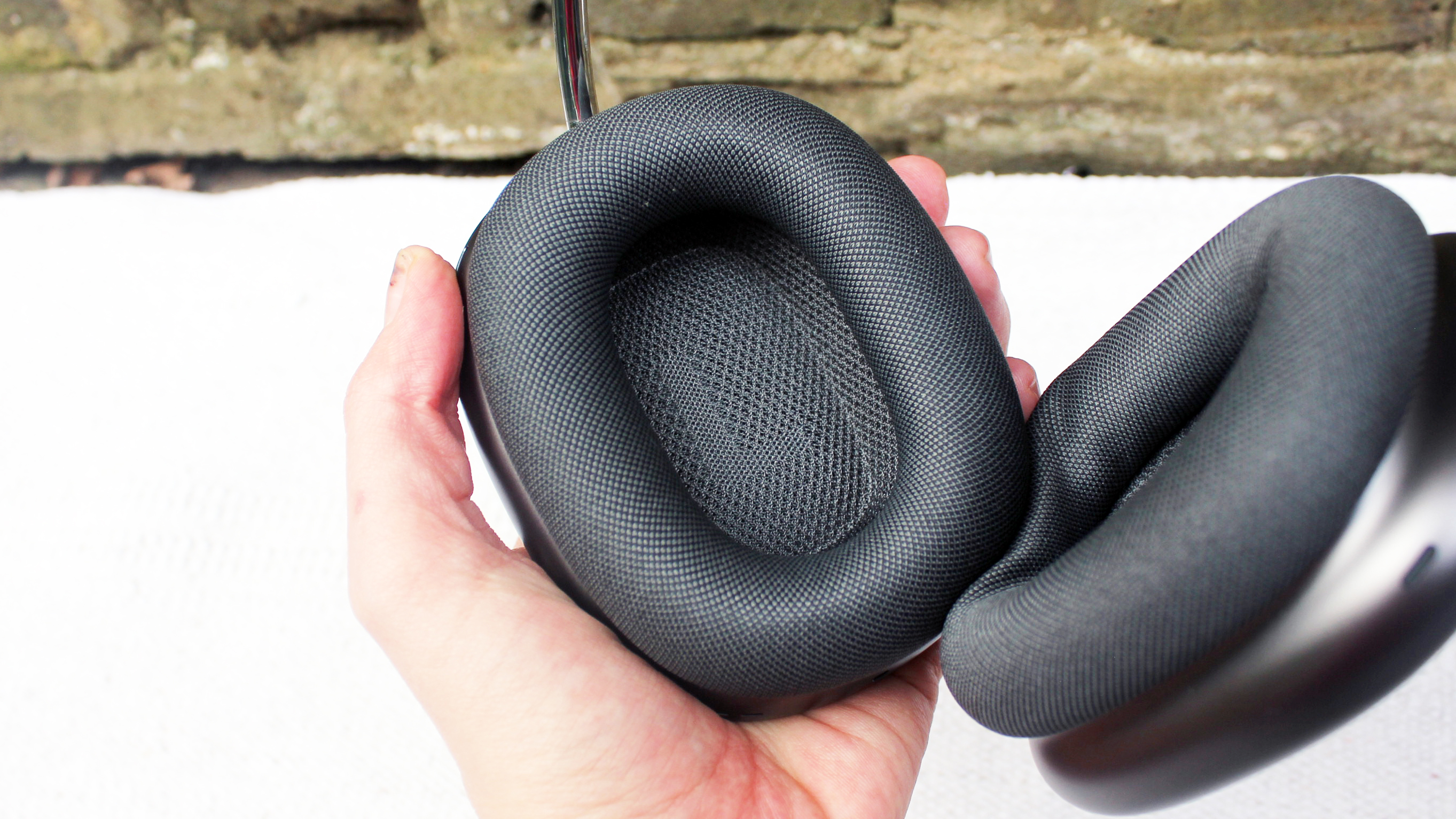
The right earcup also houses a noise control button that allows you to switch between active noise cancellation and Transparency mode, which allows some environmental noise to pass through the headphones, while the bottom of the earcup houses an Apple Lightning port for charging.
What isn't included is a 3.5mm audio port. So, if you want to listen with a wired connection, you'll have to fork out for a Lighting to 3.5mm audio adapter for an additional $35 / £35 (about AU$45).
It's frustrating that this doesn't come included with the headphones when you consider how expensive they are—if you're paying $549 / £549 / AU$899 for a pair of headphones, you might (quite reasonably) expect to be able to plug them into an amplifier or DAC to squeeze out every last drop of fidelity right out of the box.
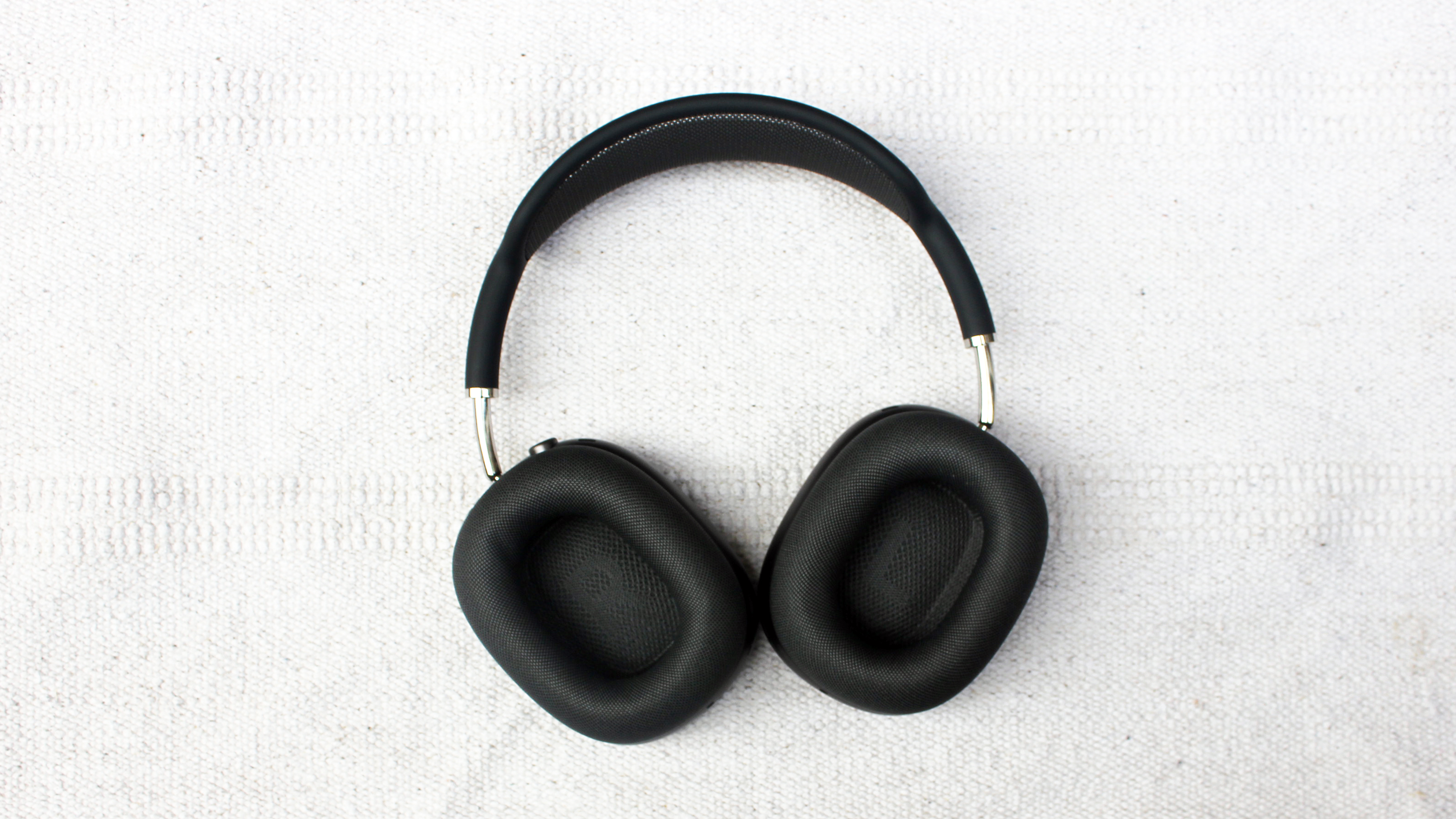
Interestingly, the lack of audio port isn't the most divisive design aspect of the AirPods Max; that award goes to the unusual-looking Smart Case, which puts the headphones in an 'ultralow power state', preserving the battery while the headphones aren't in use.
So far, the Smart Case has been compared to a bra, a sleeping mask, and a handbag by bemused Twitter users, and we can't say that we blame them.
That design wouldn't be so egregious if the case actually did what it's supposed to do: protect your headphones. Instead, the Smart Case leaves the headband of the AirPods Max totally exposed, and while an opening at the bottom of the case does make it easy to charge the headphones without removing them, it leaves them vulnerable to debris finding its way inside.
The rubberized material is also a magnet for smudges and scrapes, and just placing the Smart Case in a bag is enough to ruin the pristine look you get straight out of the box. Again, we'’d expect more from Apple at the price; while lightweight and compact, a hard case with a zip would provide far more protection and peace of mind.
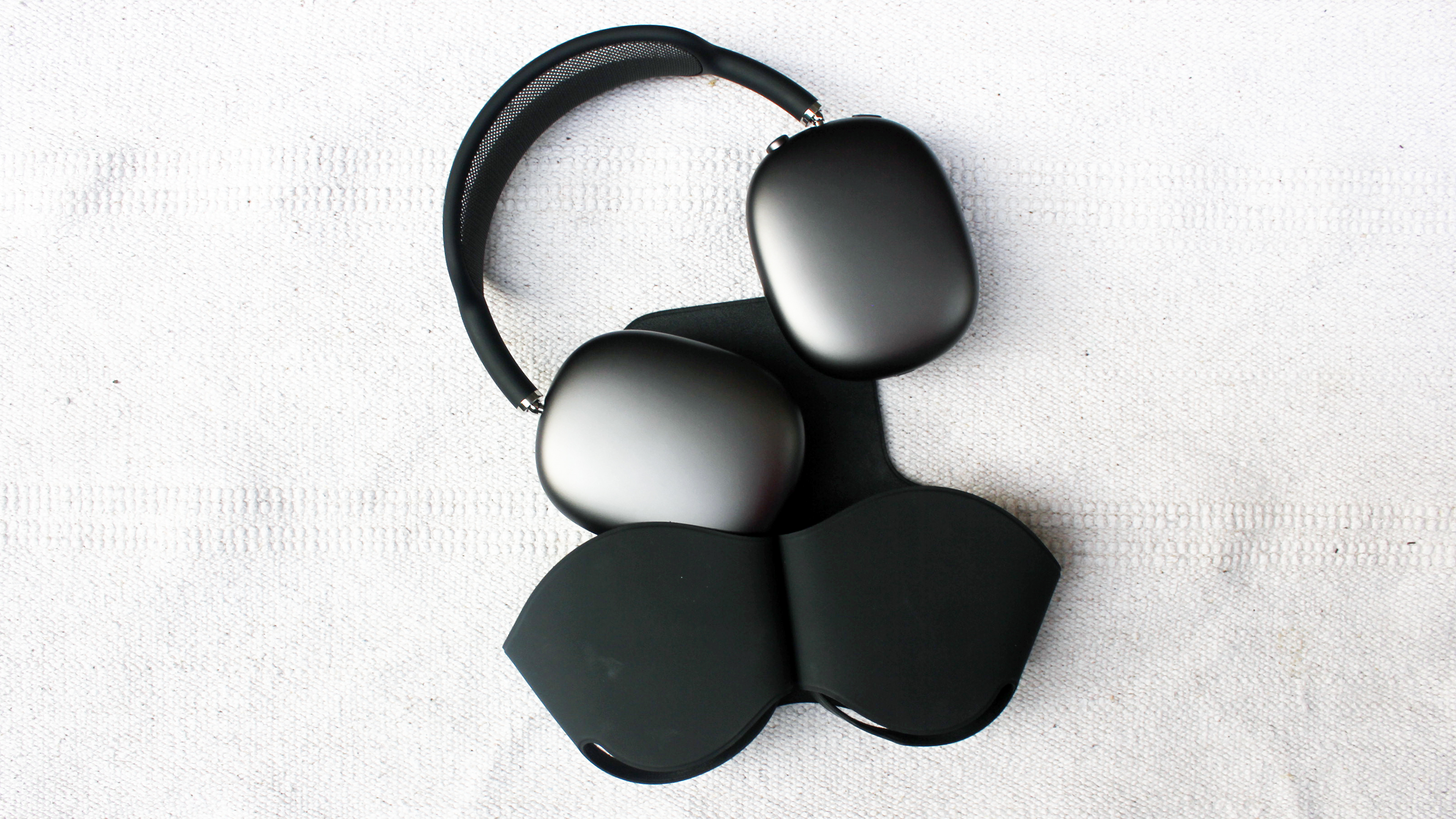
AirPods Max review: Audio performance
- A wide, well-balanced soundstage
- Support for Hi-Res Audio files is limited
The audio quality offered by the Apple AirPods Max is simply outstanding. They come with a wide, well-balanced soundstage that leaves plenty of room for each instrument to really sing—pair that with cool extra features like automatically pausing your music when you remove the headphones and Spatial Audio, and you've got yourself a very special pair of cans.
Listening to Phoebe Bridgers' Garden Song, and her soft vocal sounded smooth and clear, with every detail meticulously conveyed by the AirPods Max. The glitchy picked guitar had a lovely rich quality to it, with a fantastic sense of rhythm and stereo separation.
Moving onto Love My Way by The Psychedelic Furs, the glockenspiel sounded bright and vivid, while the tightly-controlled bass provided a solid bedrock for the guitar and vocals. As we turned up the volume, we didn't experience any issues with distortion, partly thanks to the neodymium ring magnet motor inside the headphones that powers its 40mm drivers.
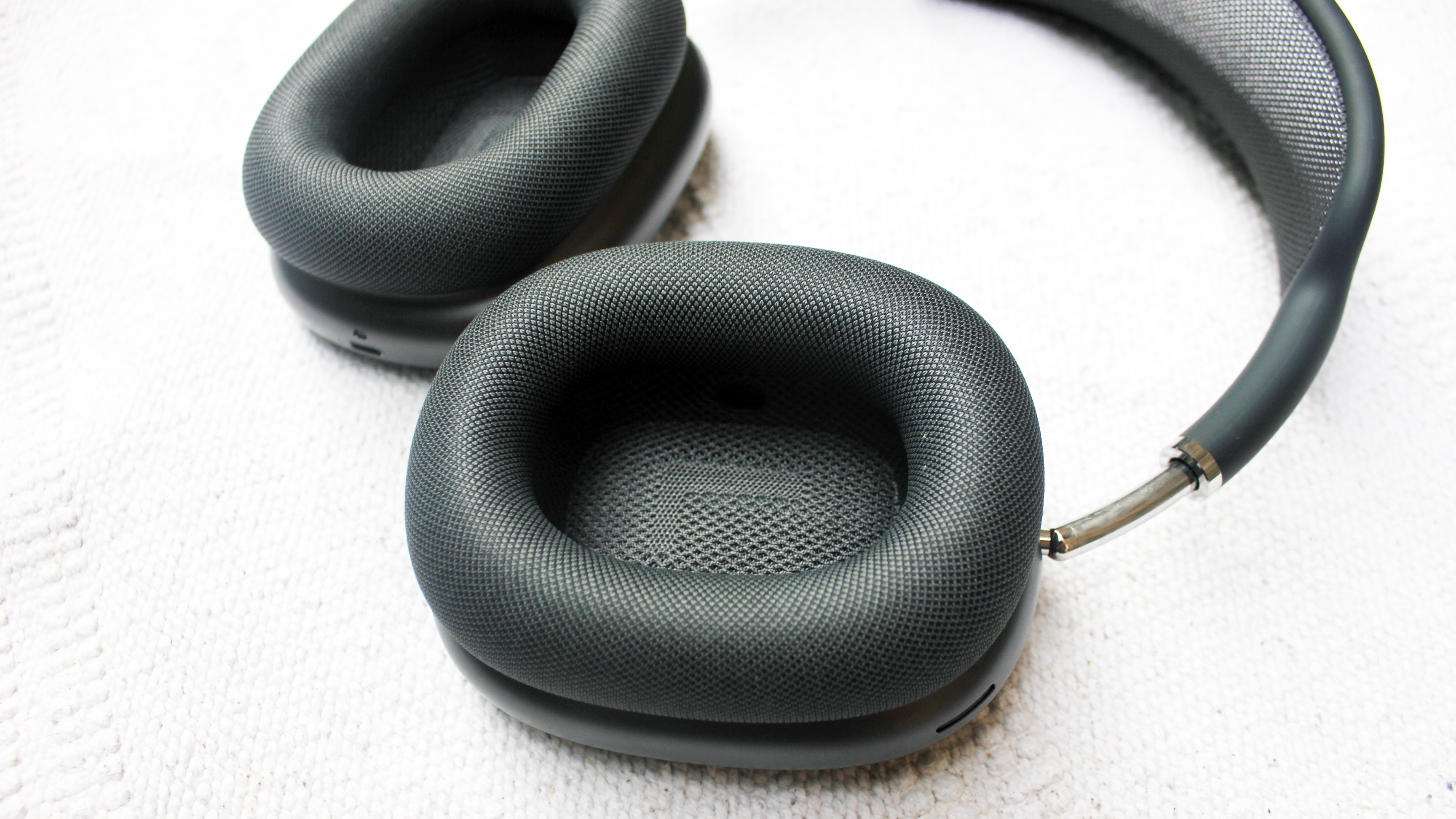
The AirPods Max are great for listening to pretty much any genre of music, whether you're into sparkly pop with strong vocals or hip-hop with punchy basslines—and unlike the AirPods Pro, they can handle classical music, too. As we listened to Mozart's Jupiter, the raucous opening sounded expansive and decadent, while the quieter flute passages were handled delicately with accuracy and precision.
Despite the high price of the AirPods Max, support for Hi-Res Audio files is limited to Apple's own Apple Digital Masters tracks, which are only available via Apple Music. Again, this makes it feel as though we're being somewhat shortchanged, as we'd expect comprehensive codec support at this price—and now that Apple Music offers Lossless Audio, the lack of lossless streaming support is unfortunate.
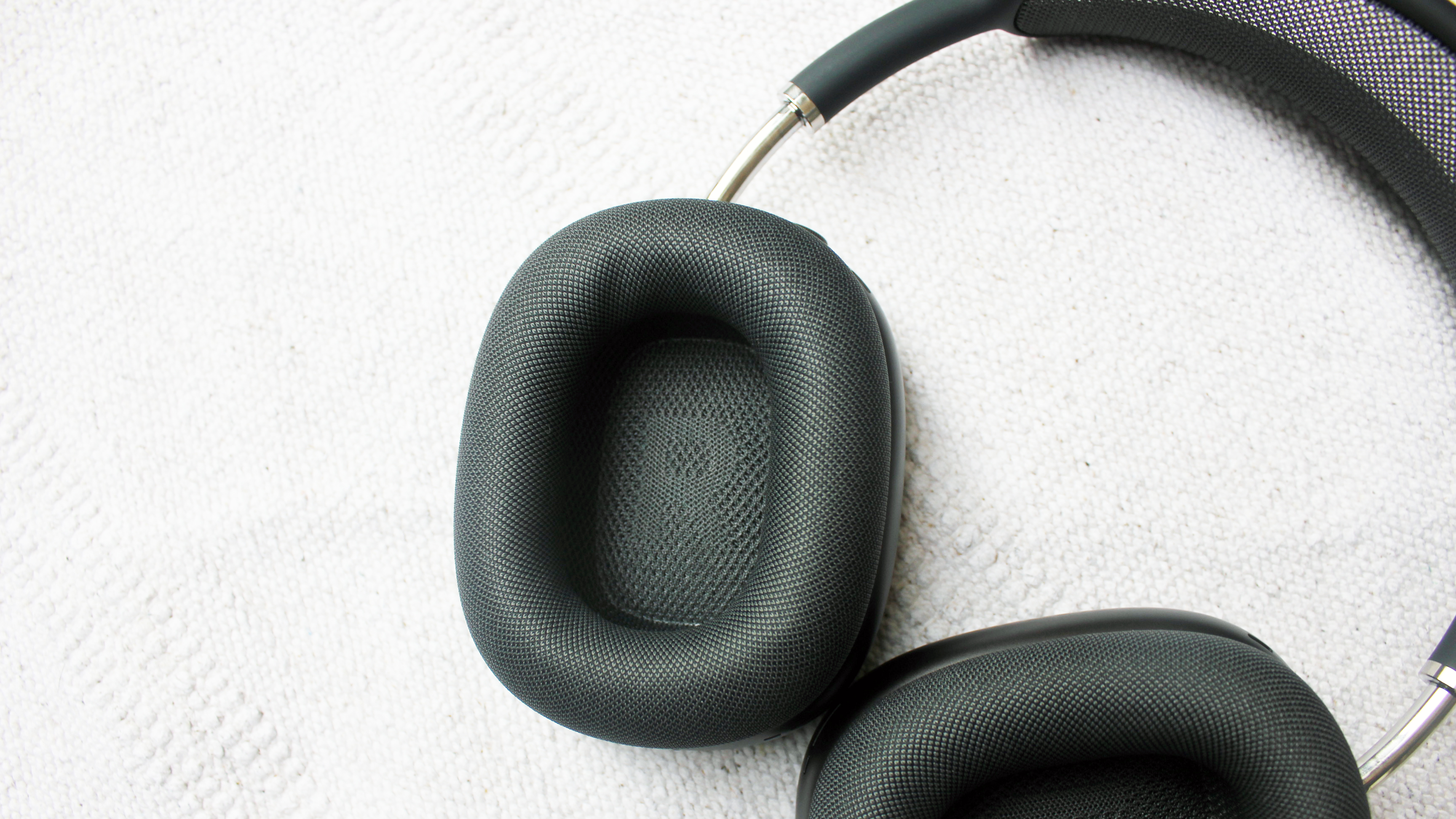
AirPods Max review: Spatial audio
- Spatial Audio is great and immersive
- Fantastic for movie watching
Like the AirPods and AirPods Pro, the AirPods Max come with the Apple H1 chip in each earcup, which features no less than 10 audio cores to allow for Adaptive EQ, active noise cancellation, Transparency mode, and Spatial Audio.
Released as part of iOS 14, the Spatial Audio feature first came to the AirPods Pro, and works for content in 5.1, 7.1 and Dolby Atmos, which positions sound all around you within a virtual sphere – this means that, for example, if you're watching a Dolby Atmos film that shows a plane flying overhead, it will sound as though the plane really is passing above you.
Something that's unique to Spatial Audio is the fact that the AirPods Max are able to track your head movement using inbuilt accelerometers and gyroscopes, as well as the position of your iOS device; that means that as you move your head, the audio will always sound as though it's coming from the screen.
To try it for yourself, you just need to find content that's available in the aforementioned surround formats—Apple TV Plus, Disney Plus and HBO Max all allow for Spatial Audio, though the likes of Netflix and Amazon Prime Video are yet to follow suit and add surround sound support for their iOS apps.
Happily, it's possible for stereo content to be converted to Spatial Audio while using the AirPods Max or AirPods Pro by opening the headphones' settings on your device.
We tested out the Spatial Audio feature on the AirPods Max with content from Apple TV Plus, and we have to say it's very effective. No, it's not as convincing as a true Dolby Atmos surround setup, but it does make movie-watching feel far more immersive—and it's a fantastic extra feature for those that watch a lot of TV shows and films on an iPhone or iPad.
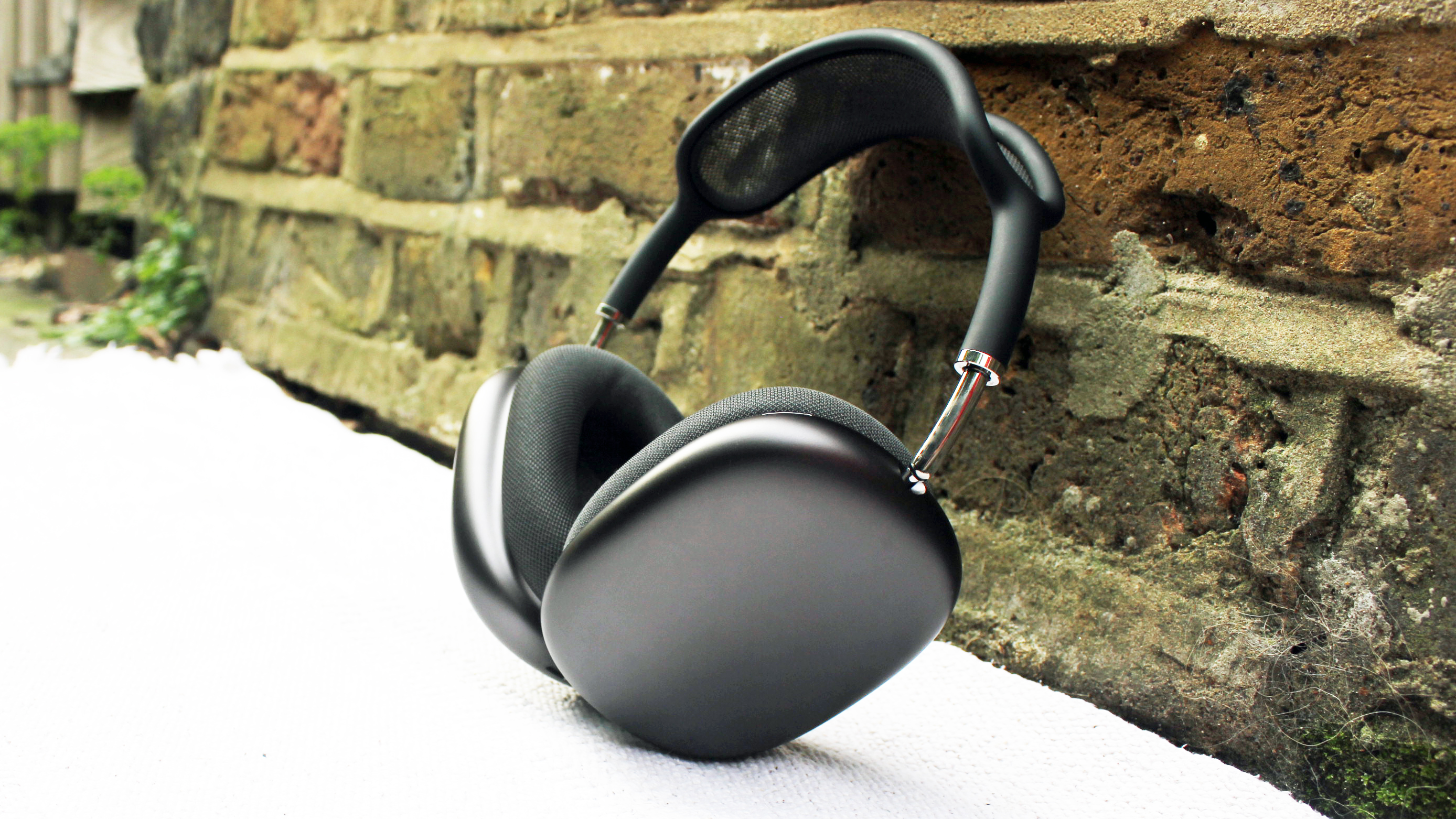
AirPods Max review: Noise cancellation
- Excellent noise cancellation
- The Transparency mode is useful
The noise cancellation provided by the Apple AirPods Max is very strong, and we'd say it's on par with the likes of the Sony WH-1000XM4 and the Bose Noise Cancelling Headphones 700.
Each ear cup features three outward-facing microphones to detect environmental noise, while one microphone inside the ear cup monitors the sound reaching your ear.
Apple says the AirPods Max use computational audio to continuously adapt their noise cancellation performance based on "the headphone fit and movement in real time". It certainly seemed effective when we tested them out in a range of situations.
During a commute, most of the rumble from the train was blocked out, and with our music playing, we couldn't hear it at all. You truly get a sense of peace when using the AirPods Max in noisy environments, whether you're working in your kitchen with the washing machine roaring away in the background, or trying to steal a few moments of solitude on a busy journey.
The Transparency mode is useful, too; you just need to press the noise cancellation button on the right earcup to allow environmental noise to pass through the headphones, allowing you to tap into your surroundings.
It's certainly handy if you need to have a quick conversation with someone without having to stop your music, and it worked really well in our tests, making it feel as though you're not wearing headphones at all.
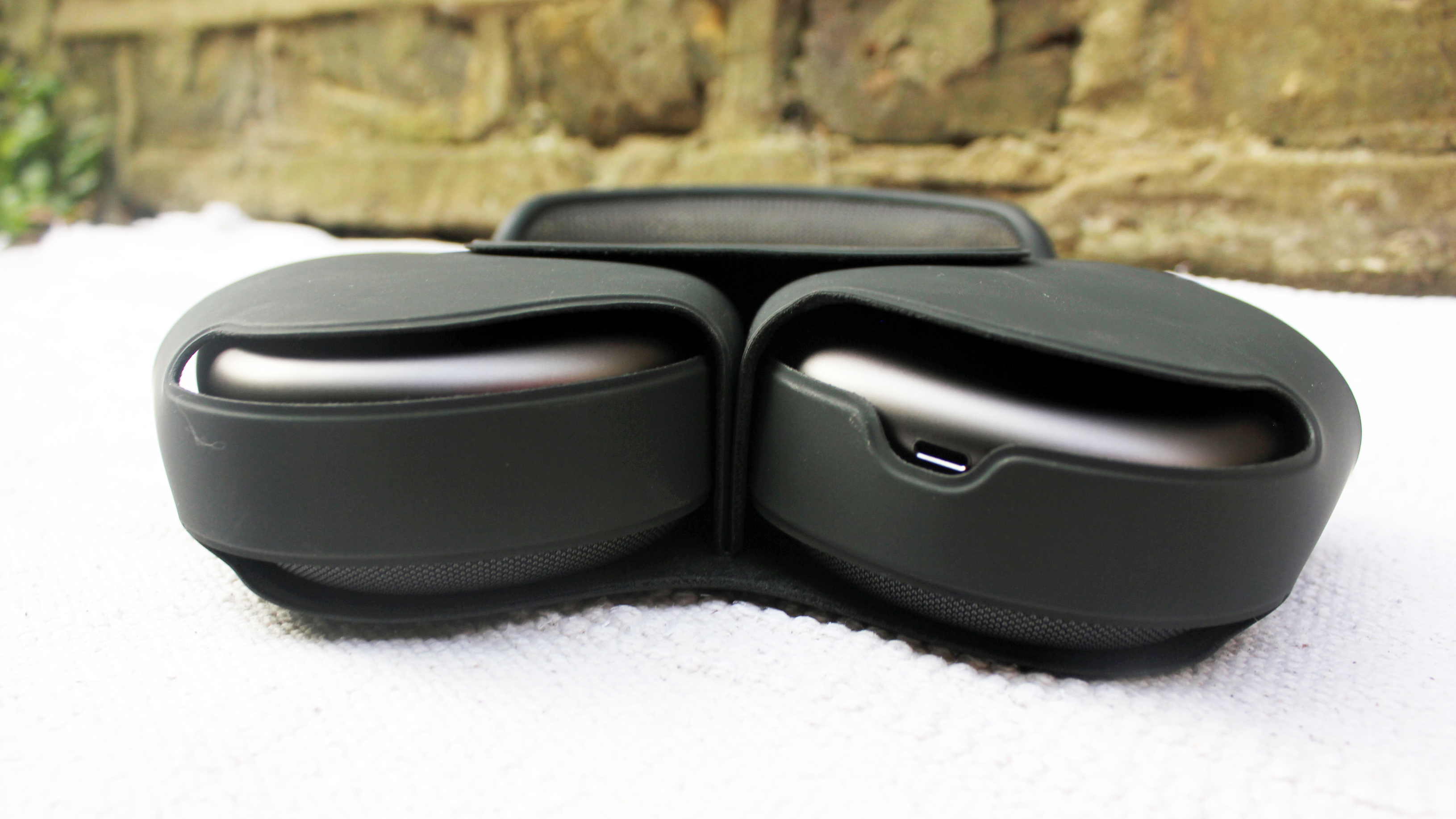
AirPods Max review: Battery life and connectivity
- 20 hours of battery life
- Low power mode with the Smart Case
Apple says the AirPods Max provide up to 20 hours of high-fidelity audio, talk time, or movie playback, which ordinarily wouldn't seem a huge amount; however, given that this is with Active Noise Cancellation enabled, it's a pretty respectable figure.
The best over-ear headphones will usually hit around 30 hours of battery life, although many very good models only make it to around 20—either way it's enough for a full day or two's use, depending on how wedded they'll be to your ears.
The stated battery life seems about right to us, and we like the fact that the Smart Case puts the headphones into a low power mode; however, the inability to actually turn the AirPods Max off is puzzling. Still, having left them in the Smart Case overnight several times, we didn't notice a significant drop off in battery life.
Connectivity comes courtesy of Bluetooth 5, and as such, pairing is fast and stable, and you shouldn't lose your connection as you move away from your source device (as long as you don't go further than 800 feet / 420 meters, or put several thick walls between the AirPods Max and your phone).
Apple says the AirPods Max require Apple devices running iOS 14.3 or later, iPadOS 14.3 or later, macOS Big Sur 11.1 or later, watchOS 7.2 or later, or tvOS 14.3 or later—while they'll work with both Android and Windows devices, you won't be able to use Spatial Audio or Automatic Switching without one of the aforementioned Apple devices.
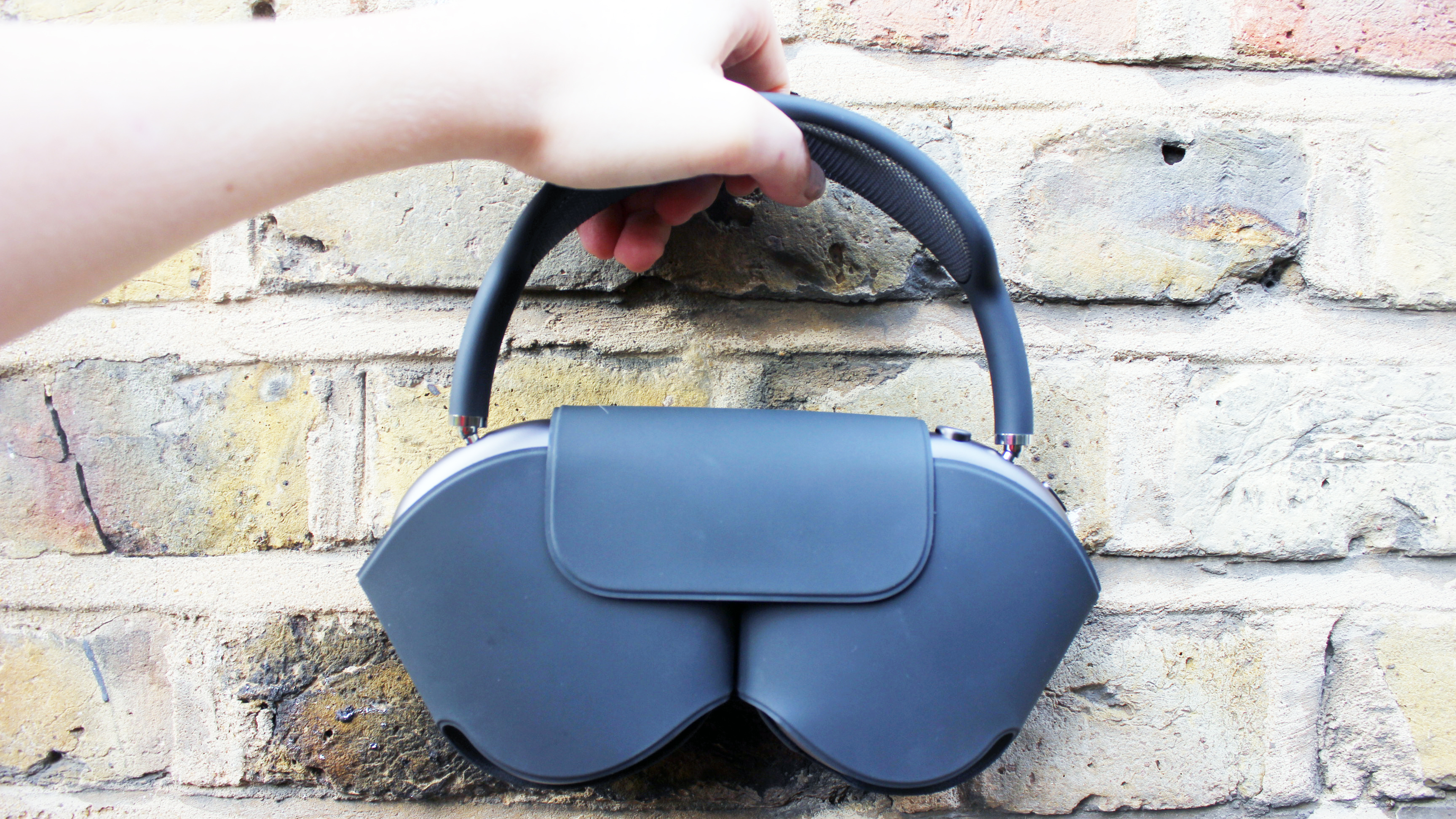
The Automatic Switching feature means you can easily switch between iPhone, iPad and Mac when jumping between music listening and taking calls, while one-tap setup will mean you can get up and running with your new cans pretty swiftly. We found the setup to be incredibly easy using both an Android device and an iOS device, though iPhone users do benefit from the ability to toggle Spatial Audio and other control settings.
You can also share audio between two sets of AirPods from pretty much any Apple source device—even the Apple TV 4K or the iPod Touch—so you and a friend can listen to the same music simultaneously.
As ever, Apple has included support for its smart assistant Siri too, meaning you can use voice commands to play music, make phone calls, adjust the volume and get directions when you're on the move, among other things. Siri can also read your incoming messages, which is useful if you don't want to dig your phone out of your pocket, bag or wherever you may have left it.
Since their release, Apple has brought a new feature to the AirPods Max: Conversation Boost. This feature dials up the volume of conversations happening in front of the user when you're in transparency mode. While anyone can benefit, it effectively allows people who are hearing impaired to better understand what people are saying in a conversation.
Again, these features are limited to iOS devices, which means many of the things that set the AirPods Max apart from the competition won't be available to Android users.
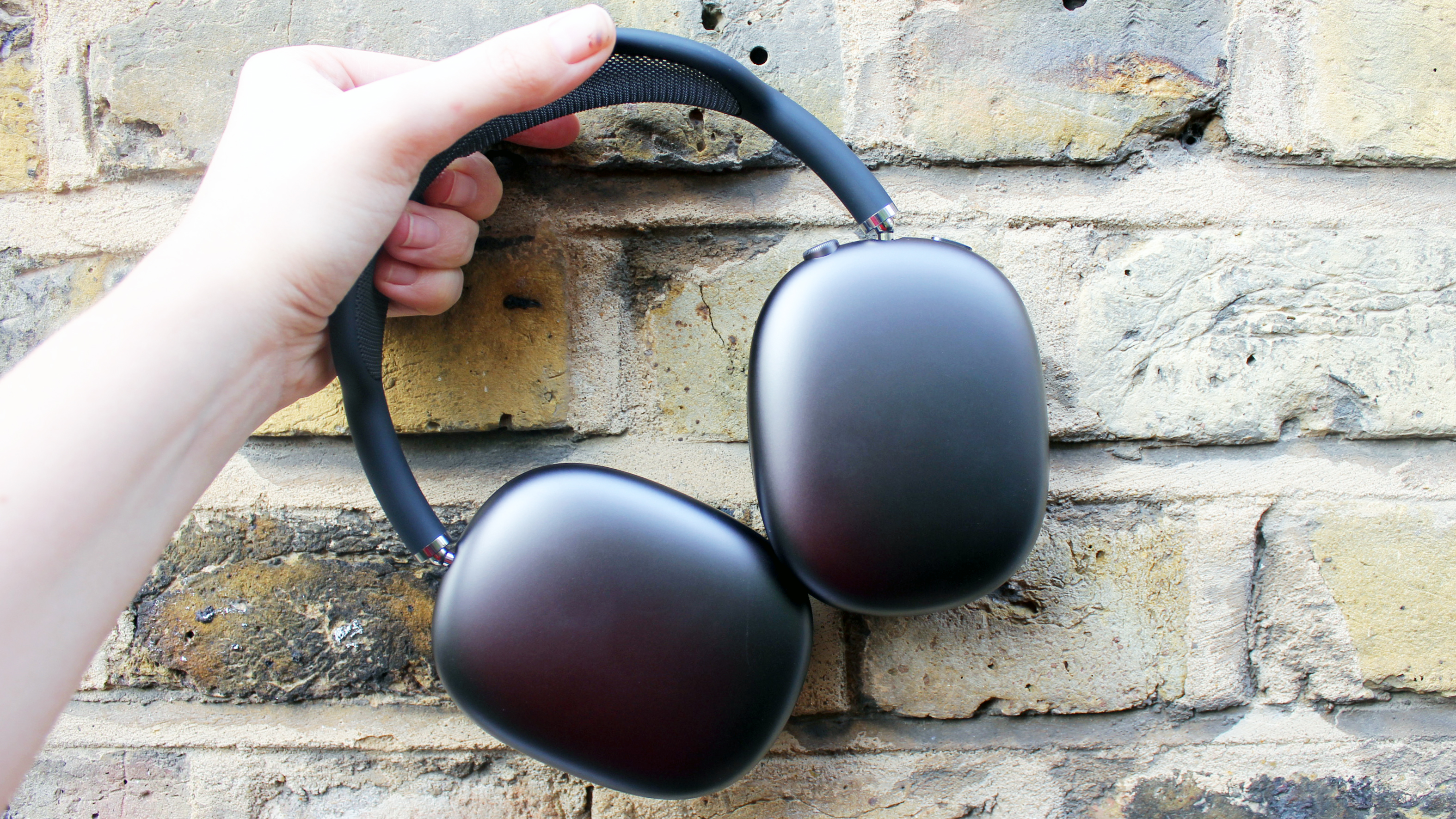
AirPods Max review: Conclusion
The Apple AirPods Max are a truly excellent pair of over-ear headphones—and among the best-sounding headphones we've ever tested. They're incredibly easy to use—thanks as always, Apple—noise cancellation stands up to the best in the bunch and they look sleek and a little unusual.
However, they're incredibly expensive and there are limitations for Android users. There's also no 3.5mm audio port here either, which means we'd only recommend them to iOS users with a lot of money to spare—and no interest in Hi-Res Audio.
AirPods Max review: Also consider
If our Apple AirPods Max review has you considering a new pair of over-ear headphones or noise-cancelling headphones, then here are three alternatives for you to check out.
Sony WH-1000XM5
The best of the best over-ear headphones you can buy today, the Sony WH-1000XM5 headphones offer class-leading noise-cancelling features and well-balanced audio. Buy these instead of the Apple AirPods Max if you have an Android phone, like the more minimal design or want a slightly cheaper option.
Read our full Sony WH-1000XM5 review
Bose Noise Cancelling Headphones 700
If you want a pair of headphones that look just as stylish and sleek as the Apple AirPods Max, then check out the Bose 700 headphones. They're still pricey and battery life is only good not great, so these are a good option if you like the Max but don't have an iPhone.
Read our Bose Noise Cancelling Headphones 700 review
JBL Tune 750BTNC
If you like the idea of a great-sounding pair of over-ears but find the price of the top picks too daunting, then check out the Tune 750BTNC from JBL. They're comfortable, offer great sound quality and have strong ANC. Although they're not particularly stylish and battery life is average, they're more than a quarter of the price of the Apple AirPods Max.
Read our JBL Tune 750BTNC review
- First reviewed in January 2021.
Olivia was previously TechRadar's Senior Editor - Home Entertainment, covering everything from headphones to TVs. Based in London, she's a popular music graduate who worked in the music industry before finding her calling in journalism. She's previously been interviewed on BBC Radio 5 Live on the subject of multi-room audio, chaired panel discussions on diversity in music festival lineups, and her bylines include T3, Stereoboard, What to Watch, Top Ten Reviews, Creative Bloq, and Croco Magazine. Olivia now has a career in PR.
